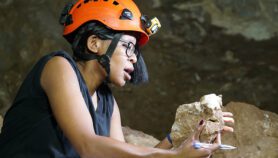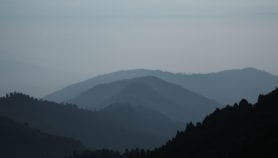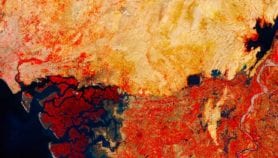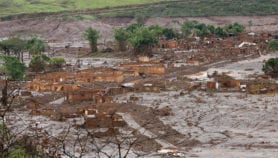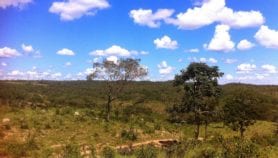By: Nasser Ennih
Send to a friend
The details you provide on this page will not be used to send unsolicited email, and will not be sold to a 3rd party. See privacy policy.
Let’s encourage the mood of political cooperation on the big issues during the International Year of Planet Earth, says Nasser Ennih.
The International Year of Planet Earth (IYPE) — launched earlier this month in Paris — is an opportunity to use the knowledge, experience and publications of the world’s estimated 500,000 earth scientists to better inform decision-makers and politicians about how to achieve sustainable development.
There is undoubtedly a gap between scientists on the one hand and politicians and decision-makers on the other. The gap will increase if we fail to increase the importance of earth sciences in our everyday life.
An example of the problems faced by the earth sciences is seen in the way that a shortage of funds halted a scientific project monitoring the Kolka Glacier in North Ossetia.
Developing countries, with their wide range of natural resources, have a potentially key role in building a sustainable world — as envisaged by the IYPE — based on improving the interactions between people and their planet.
In Africa in particular, there is still a need and a chance to learn from past mistakes in the management of resources in order to improve the living conditions of its people. The IYPE’s African activities will be launched at a conference in Arusha, Tanzania, on 8–9 May 2008.
Science fosters optimism
The IYPE was initiated by the International Union of the Geological Sciences in 2000. It was seen as a way of informing governments about the earth sciences, to counteract the lack of political support evident in recent decades.
It was approved the following year by the Earth Science Division of the UN Educational, Scientific and Cultural Organization (UNESCO), making it a joint initiative between the two bodies. The UN General Assembly gave its approval in 2005.
Decision-makers need to realise that humans have overtaken nature in their power to drive global change, even contributing to a change in the climate.
The scale of the problems facing the earth sciences is daunting, but the IYPE organisers believe that there are grounds for hope — for example, in exploring possibilities for enhanced oil recovery, carbon capture and better use of geothermal energy, or by effective action against arsenic contamination of water.
In general, say the organisers, there are two reasons to be optimistic: science and cooperation.
"Science gives optimism because it increases knowledge," says IYPE’s publicity material. Cooperation is cited because there is evidence — from the Earth Summit in Rio de Janeiro in 1992 to the post-tsunami establishment of warning systems in the Indian Ocean region — of a growing tendency for cooperation among political leaders.
There is also precedent for hoping that the Year will encourage a new generation of earth scientists. The International Geophysical Year (1957–58) inspired many young people to embrace careers in earth sciences. Similarly, Germany’s GeoJahr (GeoYear) 2002 resulted in more German students enrolling in earth science subjects.
Ten themes for the year
IYPE has identified ten science themes for the year: groundwater, hazards, earth and health, climate, resources, megacities, deep earth, oceans, soils, earth and life.
Countries and regions are being encouraged to develop their own programmes, which could encourage cooperation to increase the visibility of the earth sciences, recycle educational material and support scientists from developing countries. It is envisaged that other activities will promote ‘citizen science’ by involving the public in research, competitions, publications and radio and television programmes, and art.
In Egypt, for example, the Association of African Women Geoscientists is organising a congress, "Women and the International Year of Planet Earth", in April. In November, the Geological Society of Africa will meet in Tunis. The first world conference of Young Earth Scientists is planned for 2009, and Australia will issue commemorative coins.
Professor Nasser Ennih of El Jadida University of Morocco is secretary general of the Geological Society of Africa.




